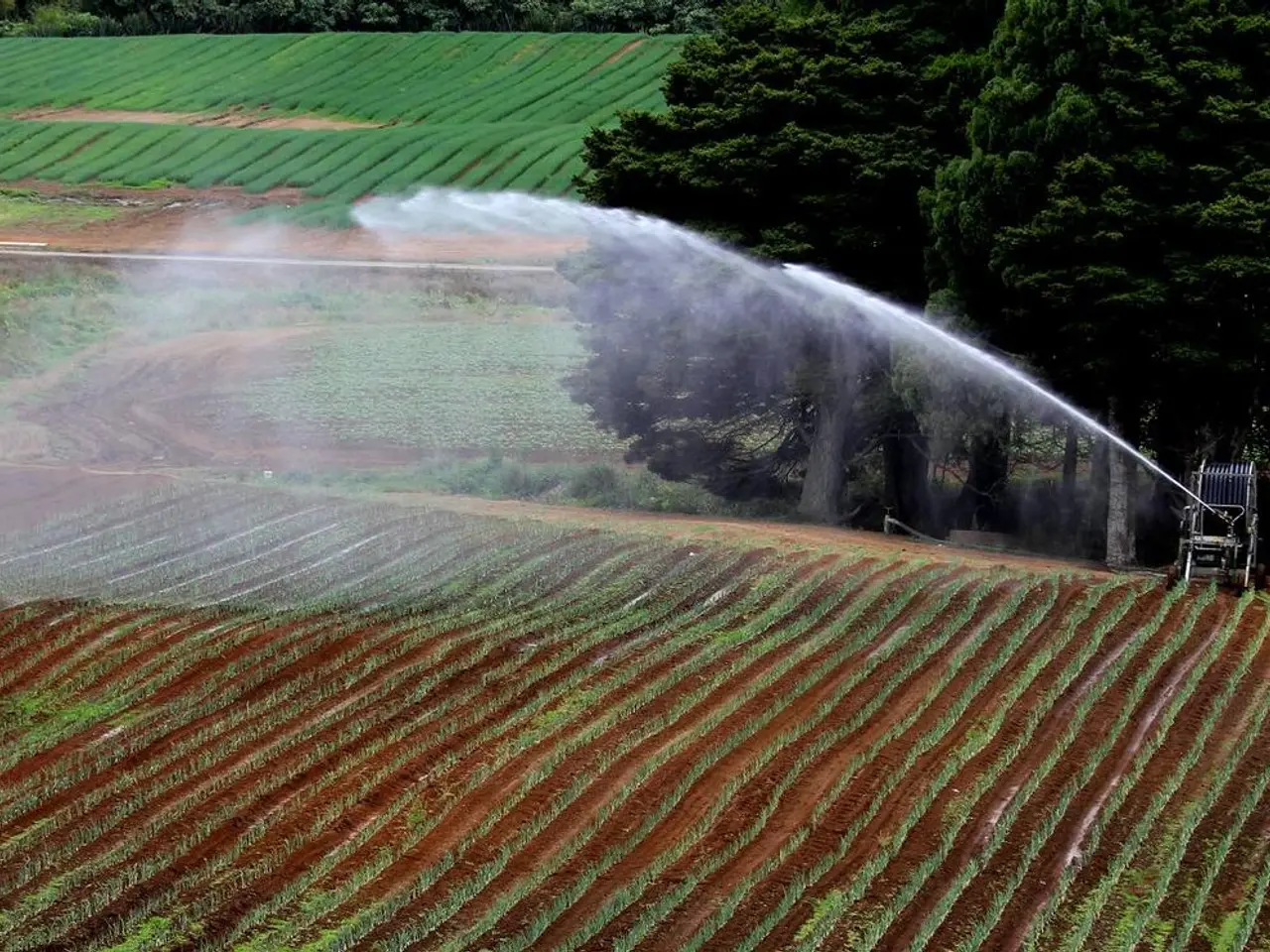Farmers encountering weather-related issues deserve a fair solution, not excessive scrutiny - a statement from the President
Latvia Declares State of Emergency in Agriculture Amidst Severe Weather Damage
Latvia has declared a state of emergency in agriculture across its entire territory, following a series of adverse weather events that have caused significant damage to crops and livestock. President Edgars Rinkevics visited a farm in Lazdumajas, Deksare parish, Rezekne municipality, to understand the problems faced by farmers due to prolonged rains.
The unfavourable situation in agriculture raises serious concerns about farmers' ability to meet their contractual obligations. According to the Rural Support Service, farmers had reported 51,498 hectares of agricultural areas damaged or not sown by July 10, causing an estimated loss of EUR 63.886 million. The actual extent of the damage could be much higher, as not all farmers have submitted their reports.
In many places, it was impossible to plant crops in time this year, where sowing never began and the fields are still uncultivated. Rainfall in May and June 2025 significantly exceeded the monthly norm, flooding farmland in central and eastern regions of the country. Excessive soil moisture often prevents farm machinery from accessing fields, delaying or making it impossible to cultivate and harvest crops.
Rinkevics plans to meet representatives of farmers' organizations to get a comprehensive picture of the situation. During the visit, discussions were held about the impact of the state of emergency declared in the agriculture sector, the quality of support measures provided, farmers' experiences with insurance companies, and proposals to prepare the sector for prolonged adverse weather conditions.
Multi-faceted Approach to Mitigate Impact
The measures taken by farmers to diversify risks and adapt to climatic conditions were also discussed. Potential long-term solutions for mitigating the impact of adverse weather on Latvian farmers include cutting bureaucratic red tape, expanding crop insurance coverage, and enhancing cooperation from banks to ease farmers' financial pressures.
The Latvian government, agriculture ministry, and president emphasize reducing administrative burdens and excessive checks on weather-affected farmers. This would streamline processes for accessing support and reduce delays in assistance. More extensive insurance coverage for crop fields is recommended to protect farmers against losses due to floods, frosts, and extreme weather. Mutual crop insurance models, such as those introduced by cooperatives, could be one effective format, especially for small-scale farmers. Livestock insurance tailored to local risks also offers protective measures against mortality and disease.
Banks are called to adopt a more cooperative attitude by offering financial flexibility like spreading tax payments over longer periods, restructuring loans, or providing working capital support to farmers affected by adverse weather. This can help farmers maintain operations and avoid insolvency.
European and International Support
Latvia submitted requests for compensation from the EU budget due to 2025 weather damages, demonstrating the importance of external financial aid. The European Agricultural Fund for Rural Development (EAFRD) can provide financial instruments including loans, guarantees, and subsidies to support resilience and investments in agriculture.
Credit institutions and other parties involved in Latvian and international contractual relations may assess the possibility of not imposing penalties on farmers affected by adverse weather conditions if they fail to honor their contractual obligations, which will enable the affected farms to remain solvent and continue production in the following seasons.
Significant losses suffered by fruit growers were caused by spring frosts, which severely damaged blooming fruit and berry trees, as well as prolonged rains and floods during the summer months. Cattle farms have also been affected by the adverse conditions.
The Agriculture Ministry has submitted to the European Commission its estimates of the impact of the 2025 adverse weather conditions on farmers and has called for a possibility to be found to compensate Latvian farmers from the European Union budget for losses. Delays in farming operations result in germination of unharvested crops, affecting their quality.
The declaration of a state of emergency allows for legal solutions to be implemented in cases of force majeure or exceptional circumstances, such as assessing the possibility of not imposing penalties or other appropriate measures for those farmers affected by adverse weather conditions in 2025. Together, these solutions create a multi-faceted approach: reducing administrative barriers, improving risk management through insurance innovations, enabling financial flexibility from credit institutions, and leveraging EU funding frameworks to make Latvian agriculture more resilient to climatic adversities.
- The environmental science community should analyze the impact of prolonged rains and excessive soil moisture on Latvian agriculture to help farmers adapt to future adverse weather conditions.
- To potentially alleviate the financial pressure on farmers, the business sector, particularly banks, should consider providing credit flexibility like extended payment terms or restructuring loans to those affected by the severe weather.
- As part of the integrated approach, environmental-science researchers, the agricultural sector, and financial institutions should collaborate to develop comprehensive solutions that enhance insurance coverage, minimize bureaucratic red tape, and fortify Latvia's agricultural industry's resilience against climatic challenges.




